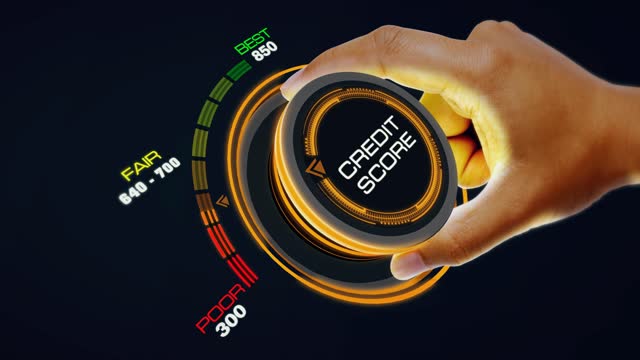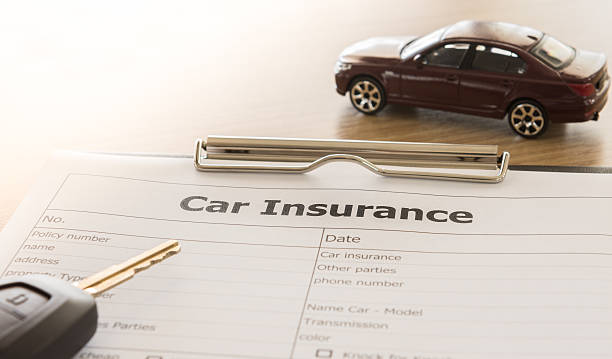Introduction
Car Insurance Rates are also influenced by credit scores, which are an important indicator of a person’s financial health. These scores assess an individual’s record as a consumer, and guarantors use them to survey your monetary obligation and solidness.
Your credit score can have a direct impact on how much you pay for car insurance. Insurance companies perceive you as a lower risk when you have a high credit score because it indicates good financial management and timely payments.
This could lead to lower insurance premiums. On the other hand, a low credit score suggests a higher level of risk, which may result in higher premiums. As a result, improving your credit score could help you save money on insurance.
Importance of Credit Scores

A credit score is a numerical representation of your creditworthiness that takes into account your financial behavior and credit history. It ranges from 300 to 850, and higher scores indicate better financial responsibility management. Payment history, total debt, credit utilization, length of credit history, and new credit accounts all have an impact on credit scores.
For risk assessment, insurance companies look at credit scores. Rates are lower for people with high credit scores because their financial decisions are less risky. On the other hand, premiums are higher for those with low credit scores. This job of FICO assessments in vehicle protection rates mirrors your monetary strength and obligation.
Insurance Agency and FICO ratings
Insurance agency use FICO ratings as an instrument for risk assessment. Insurers look at your credit score when you apply for car insurance to figure out how risky you are. The premise is that responsible drivers are more likely to fulfill their credit obligations on time.
As a result, they receive lower rates. The rates you get are better the higher your credit score is. Based on credit scores, insurers evaluate potential financial losses and adjust premium rates accordingly. This cycle helps insurance agency recognize expected high-risk people and guarantee monetary steadiness.
Relationship Between Car Insurance Rates and Credit Scores
Car insurance premiums are directly correlated with credit scores. Because insurers view you as a lower risk, having a high credit score typically results in lower premiums. On the other hand, because you are considered a higher risk with a low credit score, premiums will be higher.
This occurrence demonstrates the significance of credit scores in risk assessment. Changes in your financial assessment straightforwardly influence your top notch rates. As a result, lowering your insurance costs may be possible if you raise your credit score. Insurance companies can use this method to accurately assess your risk level and financial stability.
How to Improve Your Credit Score

There are a few effective ways to improve your credit score in order to get lower car insurance rates. First and foremost, correct any errors found in your credit report on a regular basis. Additionally, timely payments are essential because late payments affect your credit score.
Keeping credit use low is useful; Ideally, your credit card balance should be less than 30%. Furthermore, keeping a long record of loan repayment can help your FICO rating. By following these means, you can further develop your FICO assessment and possibly see a decrease in vehicle protection rates.
Impact of Credit Score on Insurance Quotes
Your credit score has a direct impact on insurance quotes, which are initial estimates of your insurance premiums. Your credit score tells insurers about your risk level and financial stability when you ask for a car insurance quote.
Quotes are typically lower for people with high credit scores because their financial behavior is more stable. On the other hand, those with low FICO ratings get higher statements, showing higher monetary gamble. As a result, getting better car insurance quotes may come from raising your credit score. This interaction adjusts protection quotes with your monetary strength and chance level.
Relationship Between Insurance Claim History and Credit Scores

Your insurance claim history and credit score are linked. Insurance companies may view you as a more risky client if you make a lot of claims, which will have an effect on your rates. This is also influenced by your credit score; Insurers can more easily offer lower premiums based on your claim history.
if you have a high credit score. It is essential to manage your claim history and avoid making unnecessary claims. In order to determine your risk profile and adjust insurance rates in accordance with it, insurance companies look at your credit score as well as your claim history.
Impact of Credit Scores on Car Insurance
Rates Can Vary by Region Credit scores’ impact on car insurance rates can vary by region. The impact of credit scores is influenced by distinct risk factors and financial habits in various regions. In certain districts, FICO ratings are given more weight, while in others, extra factors are thought of.
The risk assessment strategies of insurance companies are reflected in these regional variations. Focusing on raising your credit score may be more beneficial if you live in an area where it has a significant impact. The process of determining car insurance rates is adapted to the financial conditions of each region by these regional differences.
Strategies for Getting Better Insurance Rates
If you’ve improved your credit score and want to lower the cost of your auto insurance, there are a few good tactics you can use. First, discuss your improved credit score while negotiating with your current insurance provider.
Explain the advantages of improving your finances and your credit score during negotiations. Additionally, it can be helpful to conduct market research to compare quotes from various insurance companies. You will be able to negotiate better rates and terms with the help of this process. Utilizing your financial assessment enhancements can fundamentally decrease your protection rates.
Conclusion:
The Importance of Credit Scores in Car Insurance rates are significantly influenced by credit scores. Insurance companies use your credit score to figure out how risky you are and how stable your finances are. Premiums are typically lower for people with high credit scores than for those with low credit scores.
Therefore, lowering your credit score is a good way to control your car insurance costs. Better insurance rates are the outcomes of this procedure, which ensures financial stability. A rise in your credit score can help you save money on insurance and improve your overall financial situation.
Another important aspect is the financial stability of the insurance company. If you want to avoid problems during the claim process, you should check to see if the business is financially stable. To determine the stability of the business, you can look at its financial reports and credit ratings.
